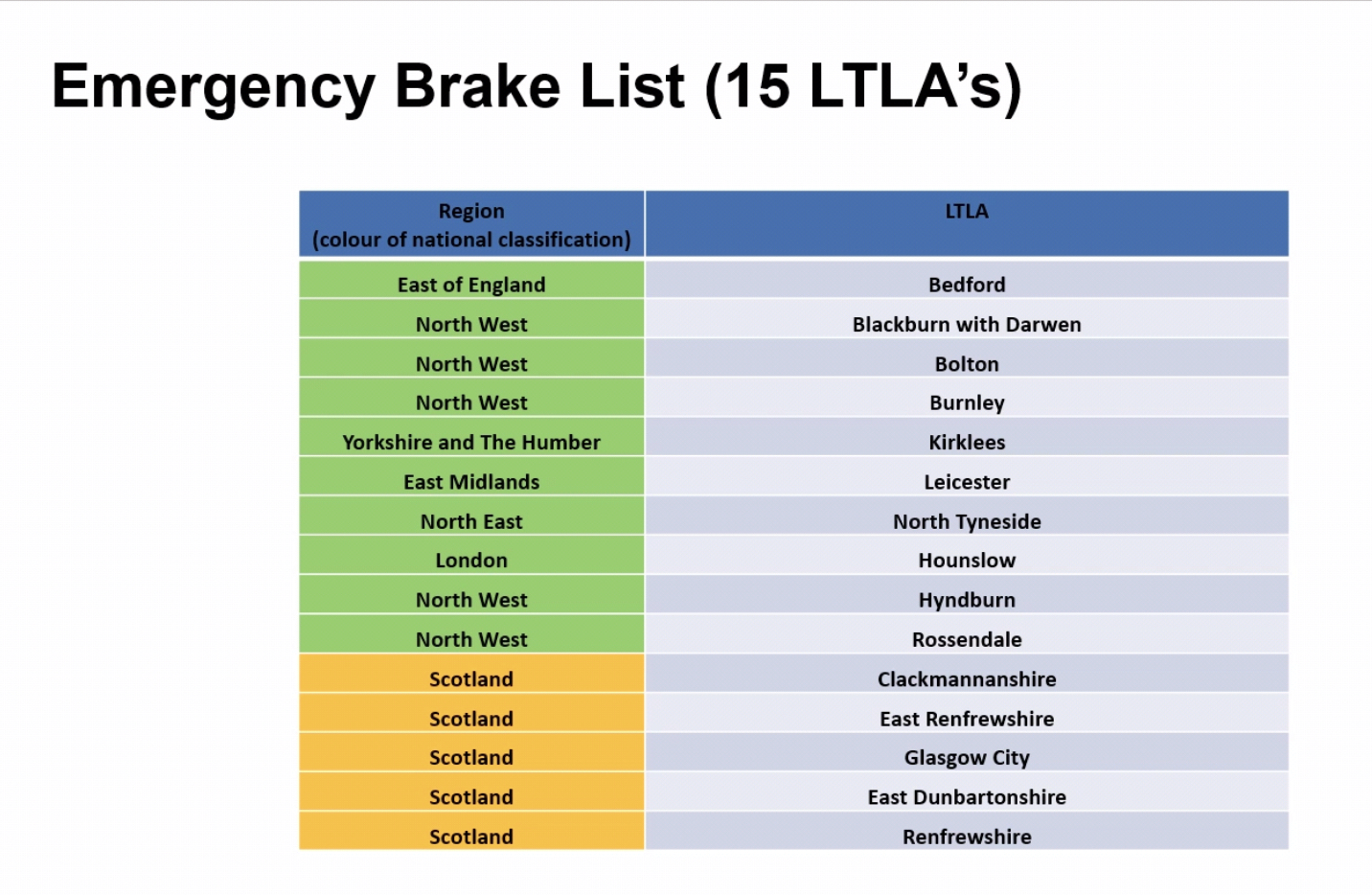


A “small number” of travellers that recently arrived in Jersey have the more transmissible variant of covid-19 first discovered in India, it has been confirmed.
Medical staff in Jersey have been sending positive covid-19 samples to a UK laboratory for analysis, to monitor which variants are present in Jersey.
Government officials today that a “small number” of samples from a batch of 52 had returned positive results for the B1.617.2 variant. They declined to confirm the exact number when asked by Express.
Those with the variant are currently in quarantine and said to be “well”.
"While this variant is more transmissible than other variants, Public Health England has said there is no evidence that it causes more severe disease, and studies show that the vaccines in use in Jersey and the UK are effective against it," Deputy Medical Officer of Health, Dr Ivan Muscat, reassured.
It comes after Jersey responded to the rapid rise in covid cases in parts of the UK by applying an 'emergency brake' to 15 areas before the island opens up to international travel on Friday (28 May). The regions will now all be classified as 'red', meaning that anyone staying a night there in the two weeks before travel, will have to isolate for 10 days on arrival in Jersey.
The emergency brake classifications will be reviewed twice a week.

Pictured: The regions on the 'emergency brake' list, which have all been badly affected by the variant originally discovered in India (B1.617.1).
From tomorrow, when a traffic light system for international travel resumes, most of England will be classed as ‘green’ and most of Scotland will be ‘amber’.
Majorca is considered ‘green’, meaning direct flights can start from next week.
Madeira is ‘amber’, which means that islanders returning from there will have to isolate until a Day 5 negative test, unless they have received both doses of their vaccine.
Following confirmation that the B1.617.2 is now in Jersey, Ministers have still decided to press ahead with the next stage of their lockdown exit plan on 14 June. The reopening decision, which was made following STAC advice, is dependent on positive cases numbers remaining low.
If they do, 14 June will see:
However, Ministers are warning that restrictions may be re-imposed if vaccine-resistant variants or the overall level of transmission poses a risk to the health of islanders.
Health Minister Deputy Richard Renouf said: "We will continue to monitor the situation and send all positive samples to the UK for sequencing. Our response, as always, is constantly reviewed in light of any changes both in Jersey and in jurisdictions we have close connections with.
"From 28 May we will implement our emergency brake for 15 areas of the UK where this variant is more prominent, and this data will be checked twice a week. People arriving from these areas will need to adhere to our 'red' arrival classification, which requires three PCR tests and isolation until a negative day 10 result has been received.
"Alongside Public Health officers, we will continue to review the options for travel classifications and developments of the B1.617.2 variant."
“Our vaccination programme, in conjunction with public health measures, regular testing, and contact tracing, remain key to controlling this virus," Dr Muscat added.
"More than 50% of adults in Jersey are now fully vaccinated. This reduces their risk of contracting or passing on the covid virus by some 80% to 90% depending on the specific variant. Adults who have had one dose of vaccine are also afforded some protection, but not to the same extent as those who have received two doses.
“This is why the Joint Committee on Vaccination and Immunisation have advised that second dose vaccinations for those who are over 50 and in at-risk groups should be brought forward. Our vaccination programme is following this advice, and all islanders over the age of 50 will have been offered a second dose by the end of May.
“Islanders are strongly encouraged to continue to adhere to public health guidelines, and anyone offered testing is strongly encouraged to be regularly tested for covid-19.”
Comments
Comments on this story express the views of the commentator only, not Bailiwick Publishing. We are unable to guarantee the accuracy of any of those comments.